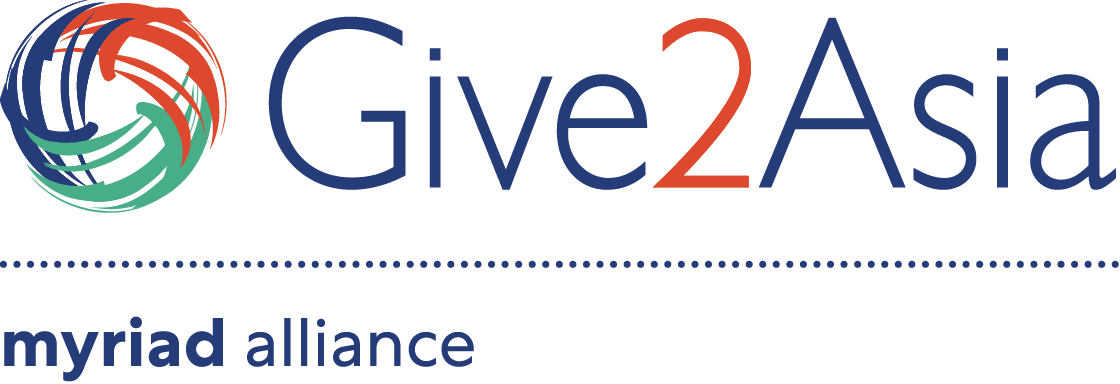Insights from Give2Asia's Vice President, Sheena Agarwal
This article was originally published by WINGS. You can view the original post here.

Philanthropy is not a new concept in the Middle East. Historically rooted largely in religious giving, the region has had a rich charitable sector for centuries. In recent years, the sector has evolved where private and non-religious philanthropy has been flourishing alongside government and community programmes to address many challenges facing the region including conflict, poverty, and inequality. This growing interest in grantmaking, both towards the Middle East and within the region, has brought immense opportunity as corporate giving and foundations seek to advance development and address unique challenges in this sector.
As a facilitator of cross-border philanthropic giving, Give2Asia recently expanded our grantmaking footprint into this vibrant and complex region. Through regional consultants and experts, we have developed a deep understanding of the region’s challenges and opportunities when it comes to navigating international funding and the nonprofit sector.
In learning about the region, we have gained insights into the most vital factors to be aware of when considering philanthropic giving and grantmaking to the Middle East.
- The Middle East holds untapped potential – The region is home to the three Abrahamic religions: Christianity, Islam and Judaism. Religious values are a central tenant of giving in the region. For example, Zakat and Sadaka – which guide giving in Islam – have long been part of the culture of giving in the Middle East. In some Muslim-majority countries such as Saudi Arabia, it is even state-regulated. Data indicates that $250 billion to $1 trillion is given for Zakat activities annually across the world. There is enormous potential to channel this giving beyond siloed activities or immediate needs and towards long-term development programmes to address social issues at scale; however, this requires greater awareness of strategic giving opportunities as well as knowledge of trusted nonprofit organisations. With the right partnerships, this annual charitable activity has a tremendous opportunity to be a more effective philanthropic vehicle in alleviating poverty.
- Local partnerships matter – Local organisations are best placed to address the diverse challenges of their community. This is not unique to the Middle East, but equally important and valuable in ensuring philanthropic giving is effective and meeting community needs. Local groups have knowledge of the social, political, and cultural realities alongside strong relationships with local networks and governments which helps to maximise grant effectiveness. Donors are increasingly interested in supporting trust-based philanthropic practices and centring local voices in the decision-making process but often do not know how to start that process. Give2Asia works through deep in-country partnerships to bridge this gap with donors and bring visibility to local organisations.
- Agility is crucial – The grantmaking processes, permissible activities of nonprofit organisations (NPOs), and involvement of state governments are highly varied throughout the region. This means that grantmakers need to be nimble and adaptable in their approach. Qatar, for example, has a highly prohibitive grantmaking process. The activities and programmes of its NPOs are restricted and they must undergo an extensive licensing and approval process by the Ministry of Administration Development, Labor, and Social Affairs (MADLSA); a process which may take up to a year. Turkey, on the other hand, has virtually no additional government approval requirements for NPOs to receive international grants with few prohibitions to their programmes. Understanding these nuances and navigating them effectively is critical to creating an effective grantmaking operation in the region that can support international donors. According to Atallah Kuttab, Founder of SAANED for Philanthropy Advisory and Give2Asia’s Regional Advisor to the Middle East, “understanding how to work alongside the government rather than in opposition or contradiction to their efforts is critical in successfully channelling private philanthropy in the region. There are many ways to fund work around equity and social justice, but it must be positioned in the right way. This is where having deep knowledge of local compliance mechanisms and reputable partners becomes critical”.
- Local nonprofits need international support – Some countries like Jordan and Israel have cultivated robust social service sectors, characterised by their professionalism and vibrancy. Nevertheless, even these NPOs encounter substantial hurdles due to their reliance on financial support from local and regional governments. Dependence on governmental funding exposes the civil society sector to a precarious situation, not only from shifting policies and priorities which could result in abrupt changes or discontinuation of funding but also from emergency response needs in a crisis. When a magnitude 7.8 earthquake struck Turkey and Syria in February 2023, the Turkish government acknowledged its own limitations in disaster response policy and the need for international support in reconstruction efforts. “Our DisasterLink network is predicated on partnerships with local nonprofits who know their communities and can offer direct programmes in a crisis,” says Avi Rembulan, Disaster Program Manager at Give2Asia, “these groups often fill gaps when government resources are limited or unavailable. We saw the impact of these direct channels for international philanthropy very clearly during the earthquake response period in Turkey and Syria”.
- Corporate Social Responsibility (CSR) is growing in the region – The private sector has emerged as a notable presence within the social investment realm, actively participating in addressing issues at both the national and community levels. As multinationals grow their footprint across the region, ensuring CSR strategies engage communities near their offices has moved from an optional practice to a business imperative. Further, as expectations of ethical business practices shift and intensify, corporate employees living and working abroad are increasingly recognising their power to shape their companies’ impact beyond profit and steer them towards a more responsible and sustainable future, where the pursuit of profit goes hand in hand with positive societal and environmental contributions. “In the Middle East, we recognise that the path to progress involves meaningful regional engagement,” says Hatim Khan, Senior Director for International Programmes at the PepsiCo Foundation, “by partnering with Give2Asia and implementing employee engagement programmes, we strive to harness the collective passion and dedication of our employees, empowering them to actively participate in the betterment of their communities. Through such collaboration, we aim to drive positive change, leaving a lasting legacy in the regions where we operate”.
Philanthropic giving in the Middle East is at a precipice. By embracing the region’s distinctive dynamics and fostering effective collaborations, grantmaking to the region can be highly impactful. Still, the needs are great. Give2Asia and our esteemed partners stand poised to catalyse philanthropic partnerships with a keen eye towards risk management to improve the lives of communities across the Middle East and indeed, reverberate positive change throughout the global community.




